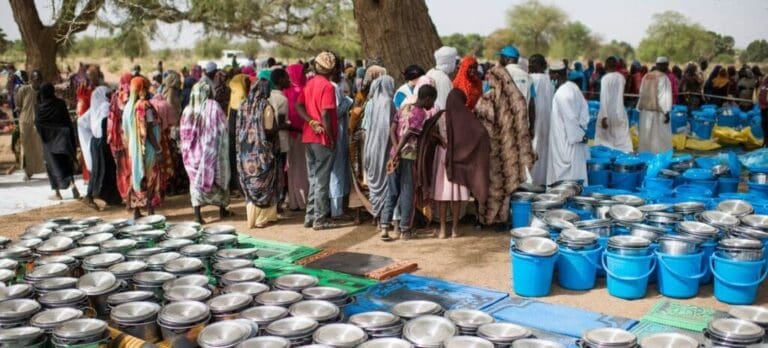Violent clashes around the Zamzam camp for displaced people in North Darfur are disrupting the delivery of humanitarian aid and endangering the safety of civilians, the World Food Programme (WFP) warned on Wednesday.
Sudan has been in the throes of a civil war between the army and paramilitaries for almost twenty months. While some people have managed to flee to neighbouring countries such as Chad, others still live in fear of artillery fire from the warring sides. In the Zamzam camp for displaced people, a region of North Darfur where famine has been officially confirmed, the fighting is jeopardising the arrival of vital WFP convoys, the UN agency told APA.
“These deliveries are the only way to reverse the trend of famine,” she said on X, expressing grave concern for the safety of civilians in the camp and its partners on the ground.
The WFP, which currently has no staff in the camp, said it managed to deliver aid to 12,500 people on 22 November, the first distribution in several months. The convoy left the camp on 29 November after distributing all the aid.
The United Nations (UN) on Tuesday strongly condemned the deadly bombardment of Zamzam, the largest site for displaced people in Darfur. The UN Resident Coordinator in Sudan, Clementine Nkweta-Salami, said she was ‘deeply concerned’ by the attacks on 1 and 2 December, which killed at least five people and injured 18 others. The attacks forced the evacuation of a hospital and disrupted health services in the camp near El Fasher, the capital of North Darfur.
“Civilians and civilian infrastructure are protected under international humanitarian law and should never be targeted,” said Ms Nkweta-Salami.
Sudan currently has the highest rate of malnutrition in East Africa, with some 3.7 million children and 1 million women suffering from the acute form of the condition. In Zamzam camp, 35 percent of children assessed suffer from acute malnutrition, with a third of them severely malnourished.
According to the UN Office for the Coordination of Humanitarian Affairs (OCHA), the besieged areas, particularly Zamzam, could face famine in the lean season of 2025 if aid continues to be blocked. Extreme food insecurity is also affecting other regions, such as South Kordofan and Khartoum, where thousands of displaced civilians are at risk.
Despite the start of the main harvest in November, the situation remains critical in the areas most affected by the conflict. WFP and the UN are calling for immediate and unhindered access by relief workers to avoid a worsening humanitarian catastrophe.
ODL/sf/ac/lb/as/APA


